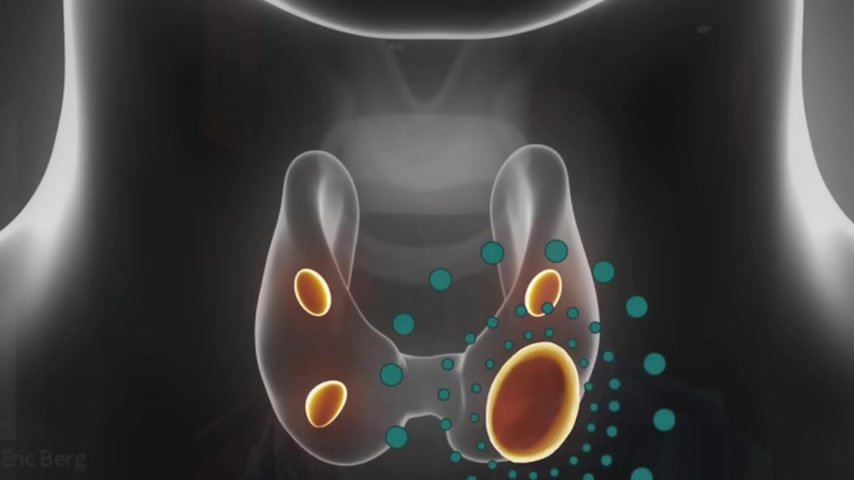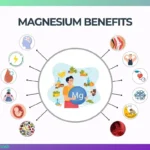Table of Contents
the power of magnesium and 9 Unexpected Benefits of Magnesium ! This vital mineral does more than you think – from boosting energy and easing muscle tension to improving sleep and supporting healthy blood sugar. Explore the amazing benefits.
How magnesium relates to chlorophyll
Now I wanted to do this Topic on magnesium because it relates to another topic that I’m studying now on chlorophyll , which is the green stuff or the blood of the plant .
When a plant is deficient in chlorophyll , the leaves turn yellow .
And one cause of that is a magnesium deficiency .
Chlorophyll .
Being the blood of the plant is similar in chemistry to our own blood .
Yet we have iron to make it red plants have magnesium to make the leaves green .
Magnesium explained

So we can have chlorosis in plants , which could be a magnesium deficiency , as well as chlorosis in humans , which is anemia where a person can actually look a little green and magnesium is a very , very important mineral .
It’s in hard water .
You have calcium and magnesium .
It’s in a very observable form .
It’s in bicarbonate .
When you heat water , those bicarbonates turn into a carbonate form , which makes them absorb less than our bodies .
And you would see it when you make your tea , when you heat your water , you’ll see this white little specks at the bottom of the pot .
So our bodies do absorb these , bicarbonates , very easily .
So hard water , mineral water , great source of magnesium , as well as calcium .
And of course , when you soften the water , you take out these minerals .
So there’s some really interesting studies that show that hard water is actually very , very good for your cardiovascular system and soft water is not .
Now one little side note about , that condition called chlorosis in plants .
One way to develop this condition is to overwater the plants because all these minerals can leach out .
Same thing happens when we drink too much water , especially without minerals , we dilute the minerals we have in our body .

And that creates all sorts of issues with our heart , with our nerves and muscles .
However , if you , if you’re not drinking hard water or , mineral water , get your magnesium from leafy greens .
Of course , an average person like consumes like 1 and a half cups of vegetables per day , but you definitely want to beat that up .
9 Unexpected benefits of magnesium
I want to talk about some very , surprising symptoms and unique benefits of magnesium .
Number 1 , magnesium relieves muscle tightness .

We know that magnesium deficiencies will create cramps to the muscles , but if you have tight muscles , which is different than a cramped muscle , that can be a magnesium deficiency .
Number 2 , magnesium is intimately involved in making ATP .
That’s the energy currency of the body .
So your energy level is dependent on magnesium .
If you don’t have enough , you’re going to be kind of tired all the time .
Number 3 , magnesium helps vitamin D’s bioavailability .

You need magnesium to allow vitamin D to work .
So if you’re deficient in magnesium , you can take all this vitamin D and it doesn’t seem to work .
And as a side note , if you want a really good form of Magnesium , I’m gonna put a link down below .
As well as a good source of Vitamin D with Magnesium , I’ll put that link down below too .
Number 4 .Magnesium prevents calcium from depositing in the wrong places in your body .
So it works similar to vitamin K2 .
Number 5 , magnesium relieves migraines .
Number 6 , having enough magnesium will support your friendly bacteria .
If someone is magnesium deficient , like 2 thirds of the world’s population , that can negatively affect the microbiome , the friendly bacteria .

number 7 , with enough magnesium , you can avoid having pins and needles and numbness , that type of thing , either in your lips , your fingers , or the bottom of your feet , which is called paresthesia .
number 8 , let’s say your cortisol is high and that affects your sleep patterns .
Magnesium can help .
So magnesium is very important in the regulation of cortisol .
So excessive cortisol symptoms could be a magnesium deficiency .
This is why magnesium helps people with stress .
number 9 , having enough magnesium will keep your parathyroid functioning at its optimum level .
The parathyroid hormone helps to regulate calcium .

So if you’re low in calcium , the parathyroid hormone will increase to help elevate calcium .
Well , guess what ?
If you’re deficient in magnesium , the parathyroid hormone will also increase to help you retain more magnesium .
So any symptoms where you have high parathyroid hormone could be a magnesium deficiency .
What causes a magnesium deficiency?
And so the question is , how do you become deficient in magnesium ?
Well , you don’t need enough leafy greens , number 1 .
Fluoride consumption and tap water , can create a magnesium deficiency .
Fluoride medications can also do it .
Refined grains , refined sugars will create a deficiency .
Low hydrochloric acid in your stomach can create a problem .

Stress will do it .
Being a diabetic can create a deficiency .
And this is why magnesium is so important to stabilize your blood sugars .
Alcohol can create a deficiency .
And if you have a malabsorption of your gut .
Medications that can cause a magnesium deficiency
Now there’s quite a few medications can also create a deficiency of magnesium , diuretics , PPIs , or antacids , statins , antibiotics , as well as birth control pills
key Points:
- Magnesium is a very important mineral. Magnesium is in hard water, mineral water, and leafy greens.
- Magnesium is not just essential for humans, but for plants too. Chlorophyll is like the blood of a plant, and a magnesium deficiency can inhibit a plant’s ability to make chlorophyll.
- Chlorophyll is similar in chemistry to our blood. The magnesium in the chlorophyll causes the leaves of a plant to look green, and the iron in our blood makes it look red.
- There is a condition called chlorosis in plants caused by a magnesium deficiency. Chlorosis in humans is anemia and is caused by an iron deficiency. But, a person with anemia may even look a little green.
The unexpected benefits of magnesium:
- It relieves muscle tightness
- It boosts energy
- It supports vitamin D bioavailability
- It helps prevent calcium from depositing in the soft tissues
- It can help relieve migraines
- It supports your friendly bacteria
- It can potentially help reduce paresthesia
- It helps counter cortisol
- It helps balance the parathyroid hormone
Causes of a magnesium deficiency:
• Not consuming leafy greens
• Fluoride consumption
• Refined grains
• Refined sugar
• Low hydrochloric acid
• Stress
• Diabetes
• Alcohol
• Malabsorption
Medications that can potentially cause a magnesium deficiency:
• Diuretics
• PPIs and antacids
• Statins
• Antibiotics
• Birth control pills
DATA:
Get my FREE PDF Guide on Magnesium 👉Guide on Magnesium
FAQ:
1. What is the biggest benefit of magnesium?
- Energy Production: Magnesium is a cofactor in over 300 enzyme systems, including those involved in converting food into usable energy.
- Muscle and Nerve Function: It’s essential for muscle contraction and relaxation, nerve impulse transmission, and maintaining a regular heartbeat.
- Blood Sugar Control: Magnesium helps regulate blood sugar levels and improves insulin sensitivity, which is essential for preventing type 2 diabetes.
- Bone Health: It contributes to bone formation and helps maintain bone density.
- Mental Well-being: Some studies suggest magnesium may help with symptoms of anxiety, depression, and sleep disturbances.
2. What are the 7 essential magnesium?
- Magnesium citrate: Well-absorbed and often used for constipation relief.
- Magnesium glycinate: Highly bioavailable and may help with sleep and anxiety.
- Magnesium oxide: Less bioavailable but can be helpful for constipation.
- Magnesium chloride: Often used in topical applications like Epsom salt baths.
- Magnesium L-threonate: Shows promise in supporting cognitive function.
- Magnesium malate: May help with energy production and muscle recovery.
- Magnesium taurate: May benefit heart health and blood sugar control.
3. What are the miracle benefits of magnesium?
It’s important to avoid using terms like “miracle benefits” when discussing nutrients. While magnesium is vital for health, it’s not a cure-all.
4. Is it okay to take magnesium every day?
Whether it’s okay to take magnesium daily depends on your individual needs and health status. It’s essential to:
- Consult your doctor: They can determine if you have a deficiency and recommend a safe and appropriate dosage.
- Don’t self-medicate: Too much magnesium can lead to side effects like diarrhea, nausea, and abdominal cramping.
- Consider food sources: Include magnesium-rich foods in your diet, such as leafy greens, nuts, seeds, legumes, and dark chocolate.
Here’s a breakdown of the information you requested about magnesium:
Benefits of Taking Magnesium at Night
- Improved Sleep Quality: Magnesium plays a role in regulating neurotransmitters involved in sleep, like GABA, which promotes relaxation and reduces brain activity.
- Reduced Muscle Cramps and Restless Legs: Magnesium’s role in muscle relaxation can ease nighttime leg cramps and restless legs syndrome (RLS).
- Better Sleep for Those with Insomnia: Studies show magnesium supplementation can improve sleep efficiency and time to fall asleep, especially in people with insomnia.
Magnesium Glycinate
- High Bioavailability: Considered one of the most easily absorbed forms of magnesium.
- Calming Effect: The addition of glycine, an amino acid, further promotes relaxation and may enhance sleep quality.
- May Reduce Anxiety: Glycine acts on certain receptors in the brain that regulate anxiety and stress responses.
Magnesium Benefits for Women
- PMS Relief: Magnesium can reduce water retention, bloating, and breast tenderness associated with premenstrual syndrome (PMS).
- Migraine Prevention: Studies suggest magnesium supplementation may reduce the frequency and severity of migraines in women.
- Healthy Pregnancy: Adequate magnesium intake during pregnancy supports fetal development, helps prevent preterm labor, and may reduce the risk of preeclampsia.
- Bone Health During Menopause: Magnesium helps maintain bone density, which is crucial for women experiencing bone loss during menopause.
Magnesium Foods
Here are some excellent sources of magnesium:
- Leafy Greens: Spinach, kale, collard greens
- Nuts and Seeds: Almonds, pumpkin seeds, chia seeds, flaxseeds
- Legumes: Black beans, lentils, chickpeas
- Dark Chocolate: Choose varieties with a high cocoa content (70% or higher)
- Avocado
- Tofu
- Whole Grains: Brown rice, quinoa, oats
Magnesium Water
- Natural Source: Some mineral waters contain naturally occurring magnesium. Check the label for magnesium content.
- DIY Option: You can make your own by adding a teaspoon of Epsom salt (magnesium sulfate) to a gallon of water. However, be mindful of the taste and start with a smaller amount to assess tolerance.
Important Notes:
- Dosage: The recommended daily intake of magnesium varies depending on age and gender. Consult your doctor for personalized advice.
- Potential Side Effects: Taking high doses of magnesium can lead to diarrhea, nausea, and stomach cramps.
- Interactions: Magnesium supplements can interact with certain medications. Inform your doctor about any medications or supplements you are currently taking.




